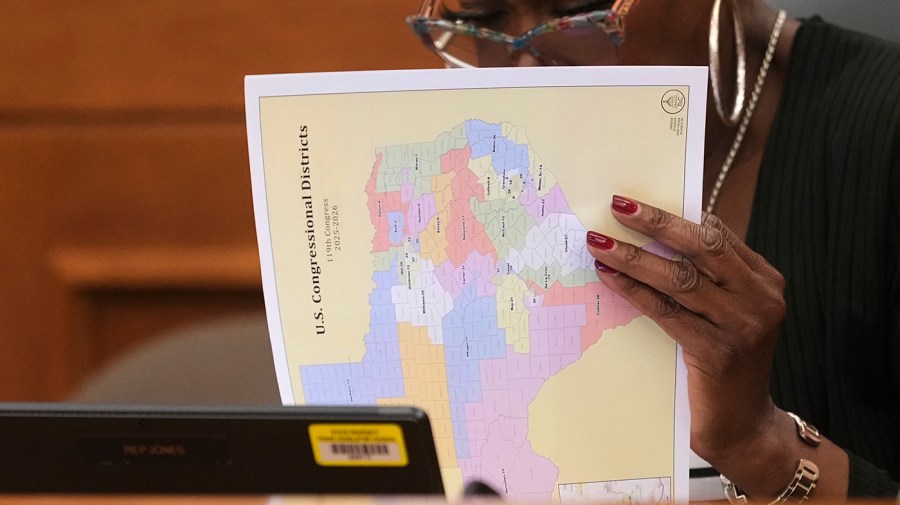Texas voters are showing a divided stance on the Republican Party’s redistricting efforts, which could potentially add five additional GOP House seats before the upcoming midterm elections. According to a recent survey by Emerson College Polling, 38 percent of voters opposed the congressional map redrawing plan, while 36 percent expressed support, with the remaining 26 percent unsure.
Support for the redistricting proposal varies significantly across party lines. Among Republicans, 58 percent are in favor, compared to just 15 percent of Democrats and 24 percent of independents. This partisan divide highlights the contentious nature of the issue as Texas Democrats have taken drastic measures, leaving the state in a strategic move to prevent the state Legislature from reaching a quorum necessary for proceeding with the proposal. Despite this, Texas Governor Greg Abbott, a Republican, is expected to call another special session to push the plan forward.
The redistricting initiative, which has gained the backing of former President Donald Trump, aims to bolster Republican representation in the House. Currently, Republicans hold 25 of Texas’s 38 congressional seats, but the proposed changes could enhance their majority to a potential 30-8 advantage. When asked about Trump’s assertion that Texas Republicans are “entitled to five more congressional seats,” 40 percent of voters agreed, while 38 percent disagreed, and 22 percent remained neutral.
The political fallout from the redistricting debate has also brought attention to the Texas legislators who have left the state. These Democrats face potential fines for breaking quorum, along with threats of arrest and removal from their positions. In the Emerson poll, 41 percent of respondents indicated that these legislators should be arrested, while 37 percent disagreed, and 22 percent remained neutral on the issue.
As the redistricting battle unfolds, figures such as Senator Jon Cornyn and Texas Attorney General Ken Paxton are actively engaging in the conflict. Cornyn has sought assistance from the FBI to locate the absent Texas Democrats, while a recent ruling by an Illinois judge denied Paxton’s request to hold these legislators in contempt. These developments emerge in the context of a competitive primary election for the Senate in 2026, where Paxton is mounting a conservative challenge against the incumbent.
The Emerson poll was conducted on August 11-12, 2023, among 1,000 Texas active registered voters and carries a credibility interval of plus or minus 3 percentage points. The findings underscore the significant divisions among Texas voters regarding the redistricting plan and its implications for the upcoming elections.






































































